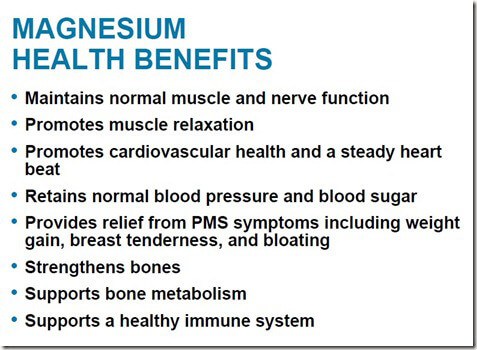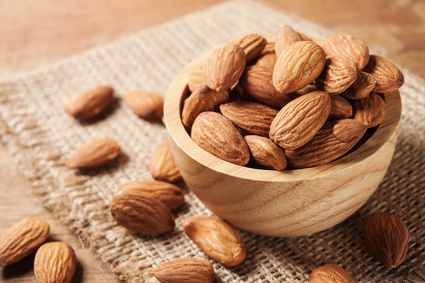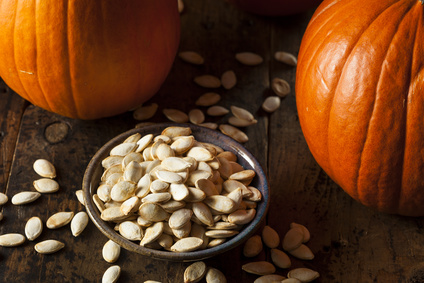

Magnesium is an important component of overall health, regulating and interacting in hundreds of chemical processes throughout the human body.
It is responsible for proper function and repair of muscle and nerve tissue, including the heart. It’s also an important factor in protecting blood vessels, regulating blood pressure and even aids in the prevention of diabetes.

Because it is so important to our health, it is essential to make sure we get enough magnesium in our diet.

Almonds are a superstar in the nutrition arena, effective against weight gain and great for your heart. They pack a ton of health benefits as well as being a great source of magnesium.
Because almonds are such a widely used ingredient, from sweet to savory to snack, adding more to your diet is a breeze.
Finely chopped almonds can be used as a breading for fish or poultry as well as mixed into bread and cookie doughs. Sliced or slivered they can be sprinkled on steamed vegetables, salads or added to a hot bowl of oatmeal.

Pumpkin seeds have been studied in connection with the fight against diabetes as they appear to have hypoglycemic properties.
If you’re adventurous, they’re easy to roast yourself in a standard oven. Like sunflower seeds, the hulls are popped open to eat the seed inside or you can purchase them already hulled for convenience.
While there isn’t a full meal idea for pumpkins seeds, they can be added to so many dishes to enhance the flavor and texture.
Sprinkled on a salad, stirred into a trail mix or added to sauteed vegetables are just a few of the many ways to enjoy these seeds.

How can you tell if you need more magnesium? Well if you’re having difficulty in going to sleep, find that you wake easily or wake before the alarm, you may be short. If you get cramps regularly, find that fluids pass through you easily, have cold hands and feet, experience tightness in the neck and shoulders or notice twitches in small muscles (the eyelid, for example), you will probably benefit from addressing this. By far the most noticeable change is sleep quality.
Magnesium is vital for the function of GABA receptors, which exist across all areas of the brain and nervous system. GABA is a calming neurotransmitter that the brain requires to switch off; without it, we remain tense, our thoughts race and we lie in bed staring at the ceiling. Whether the brain is in ‘on’ of ‘off’ mode is a very complex area, and can also be affected by chemicals like noradrenaline, serotonin and histamine. However, on a more simple level, the most crucial balance is that of GABA vs glutamate. Whereas GABA calms, glutamate fires the brain into higher states of activity; you use the latter when solving sudoku puzzles, but you need GABA to prevail in order to go to sleep.
It is suggested that taking 400-500mg of magnesium before you go to bed will help you get a more restful night. This should be in a chelated form (such as citrate, ascorbate, orotate, glycinate, ideally a mix of them). Avoid oxide salts and be aware that some sensitive people get diarrhoea from higher doses of the citrate form. For even better results, use alongside a good quality multivitamin. People with long-standing digestive issues may not absorb minerals so well and may benefit from transdermal sprays instead.
For more information on nutrition and health tips visit:
